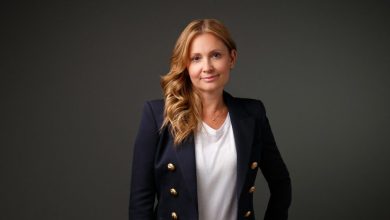Gender Parity and Inclusion in European Film Industry

The discussion on gender parity and inclusion in the film industry is gaining momentum, as European executives gather at the Sarajevo Film Festival to explore ethical standards and the effectiveness of quotas.
European Executives Discuss Gender Parity, Inclusion, and Ethics in the Film Industry
A group of top European executives kicked off the penultimate day of the Sarajevo Film Festival’s industry program with a discussion about gender parity, ethical standards, and whether quotas and inclusion targets can accelerate change in the film business.
Diverse Storytelling Through Organic Means
“I don’t believe in ticking boxes – I believe in finding ways to make diverse stories heard in a much more organic way,” said Elad Samorzik, a programmer for the Berlin International Film Festival. “It has to begin earlier, with diverse selection committees at festivals. When the people selecting the films come from various backgrounds and are more gender-equal, it fosters interesting discussions about cinema and results in a more diverse outcome. That, for me, is the essence of diversity in programming.”
Success of Quotas in Funding
During the CineLink industry Days program, executives weighed the pros and cons of quotas at funding levels and beyond, highlighting the success of the Swedish Film Institute’s “50/50 by 2020” initiative. This action plan, led by the Swedish film funding body, successfully achieved gender parity in films it supported through a rigorous quota system.
“Sweden has been a huge inspiration to us, especially in film centers, as most European films are funded with public money,” said Nataša Bučar, Managing Director of the Slovenian Film Center. “As film funds operating with public money, we have a significant responsibility towards inclusion.”
Non-Regulative Methods for Inclusion
Bučar emphasized her belief that while she doesn’t support quotas, “non-regulative” methods are the best approach. “In 2018, we found significant underrepresentation of women in filmmaking positions and commissions in Slovenia. This realization prompted us to focus on balancing representation in the committees that make decisions.”
She added, “It should be a conscious effort, but I don’t think we need to regulate it through quotas.”
Support for Quotas
Conversely, Valeska Neu from German-French sales outfit Films Boutique expressed her strong support for quotas. “They are a useful tool to accelerate progress,” she stated. “It’s 2025, and we’re still discussing this. Quotas aren’t the end goal; they are merely a means to drive change.”
See More ...
Neu continued, “At the production and federal levels, quotas should be implemented. Critics argue that quotas might exclude the best films, but in the end, pushing for change will encourage more female filmmakers to submit their projects.”
Festival Programming and Diverse Stories
Samorzik acknowledged the challenges of festival programming, stating, “Sometimes it’s difficult because we depend on what’s available. However, there comes a point in every festival selection process where the program starts to take shape, and we strive to make it more diverse and interesting.”
Producer and screenwriter Marina Gumzi remarked, “This ongoing discussion is beneficial as it raises awareness of societal aspects, compelling us to improve our scripts, stories, and work methods.”
She added, “For centuries, one group has dominated filmmaking, but now diverse voices are emerging, and the quality of narratives is evolving, which is immensely interesting.”
The 31st Sarajevo Film Festival runs until August 22.




